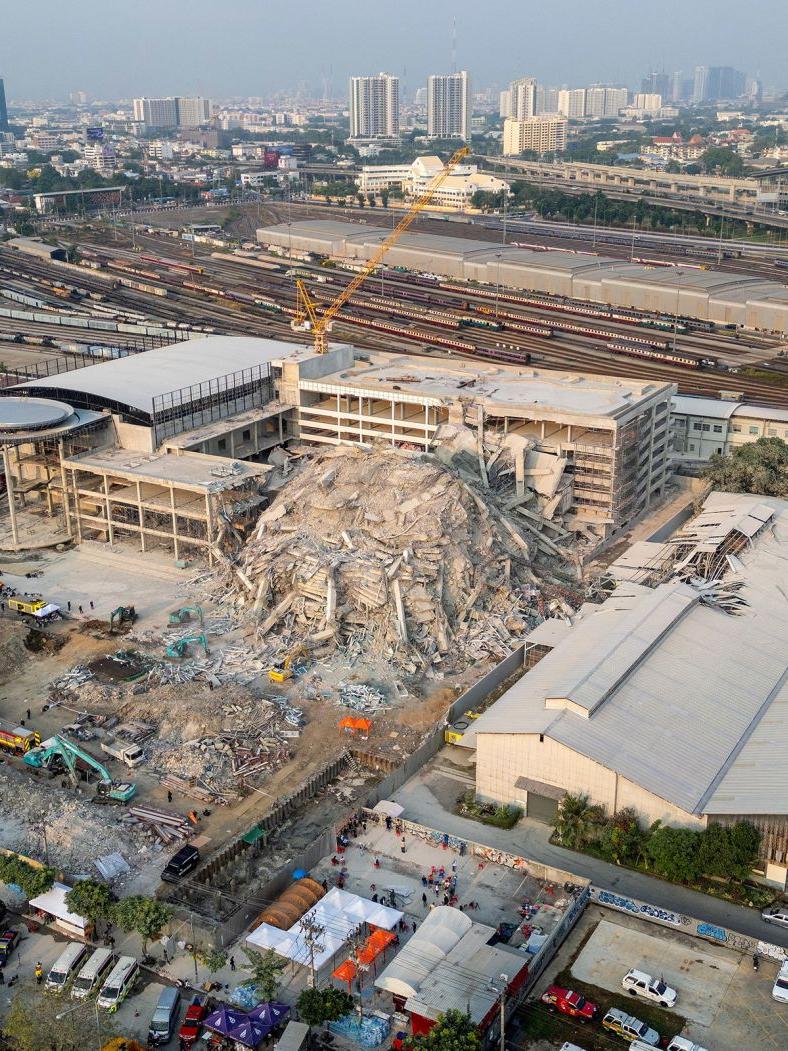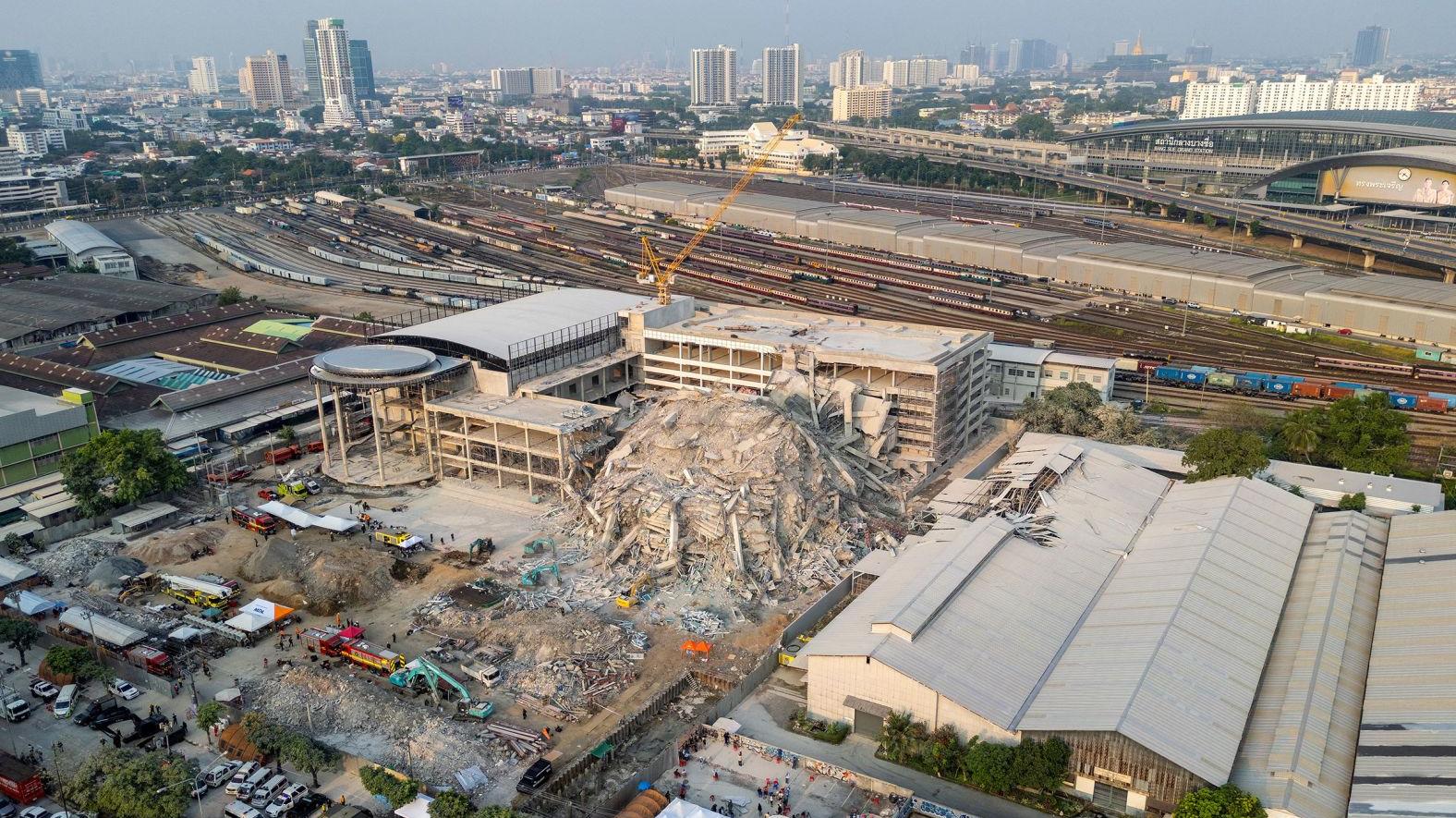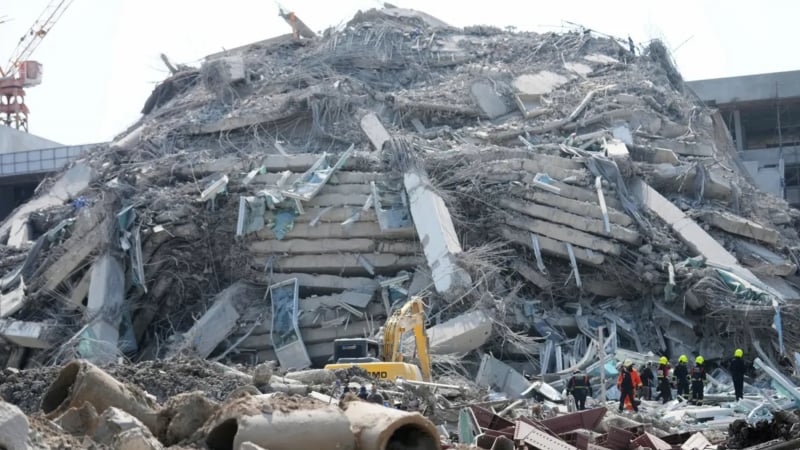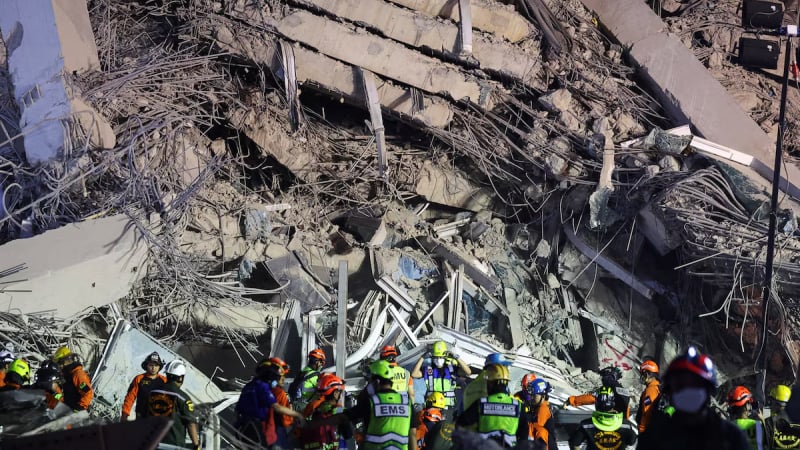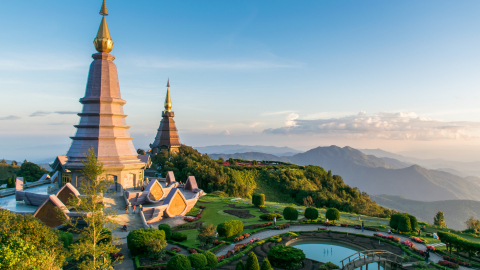Tourist numbers decline after earthquake.
Mr. Thienprasit Chaiyapatranun, Chairman of THA, said that after the earthquake, the number of tourists requesting early check-out at hotels nationwide increased by 8-10%, especially in major tourist destinations such as Bangkok, Chiang Mai, Chiang Rai and Ayutthaya.
Some tourists have changed their plans, shifting to less affected locations such as Pattaya and Phuket. However, concerns about safety after the earthquake may cause many international tourists to postpone or cancel their plans to visit Thailand in the near future.
Revenue from hotels and tourism activities is projected to decrease by at least 10-15%. Mr. Thienprasit also noted that the impact of the earthquake could be long-lasting, affecting the atmosphere of the Songkran festival – the traditional Thai New Year – making tourism less vibrant than in the previous two years. It is expected to take at least a month for the situation to return to normal.
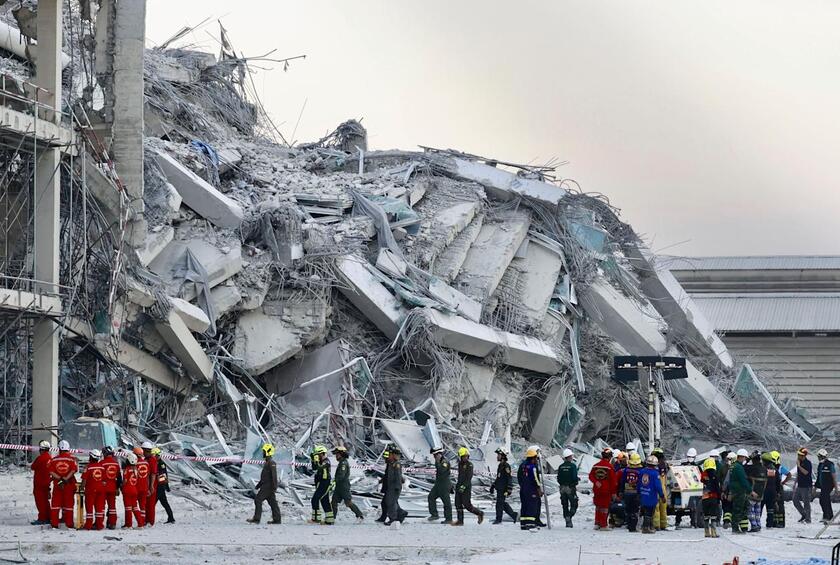
The State Audit Office building, over 30 stories high, collapsed in the earthquake, killing 12 people. It had previously been flagged by anti-corruption watchdogs for irregularities during construction. Reportedly, only 30% of the project had been completed.
Safety concerns
The collapse of the State Audit Office building in Chatuchak district, Bangkok, due to the earthquake has raised concerns about construction irregularities. Images and videos of the collapse have spread widely on social media, prompting tourists to question the safety of buildings in the country.
Mr. Thienprasit emphasized that the government needs to take strict measures to ensure the safety of tourists during the upcoming Songkran festival. He also called for measures to support people affected by natural disasters.
Furthermore, the security situation in Thailand during the first few months of 2025 also caused considerable concern. Incidents such as the disappearance of Chinese actor Xing Xing near the Thai-Myanmar border, the crackdown on phone scam gangs, concerns about the repatriation of Uyghurs to China, and most recently, the earthquake, have significantly impacted Thailand's tourism image.
"If security problems continue to occur, Thailand's tourism industry may not recover and will suffer long-term impacts," he warned.

The government needs to take strict measures to ensure the safety of tourists during the upcoming Songkran festival.
The goal of attracting tourists has been affected.
Thailand aims to attract 39 to 40 million foreign tourists in 2025. However, following the earthquake, Mr. Thienprasit believes the actual number may only reach the same level as last year, around 35.54 million visitors.
In response to this situation, the Thai government is planning to implement measures to stimulate domestic tourism to compensate for the decline in international visitors. One proposal is the "Tiew Thai Khon La Khrueng" co-payment program, which aims to encourage domestic travelers to visit.
Strengthen hotel safety inspections.
To restore tourist confidence, Thai Prime Minister Paetongtarn Shinawatra ordered a nationwide inspection of hotels. Accordingly, the Tourism Authority of Thailand (THA), in coordination with the Tourism Authority of Thailand (TAT), mobilized over 4,000 engineers to inspect the quality and safety of the buildings.
TAT is expected to publish a list of hotels that have met safety standards. Large hotels with their own teams of technicians can quickly conduct inspections, while smaller hotels may face financial difficulties in doing so. Therefore, Mr. Thienprasit suggested that the government subsidize the cost of safety inspections for small-scale accommodation establishments.
"Safety must be prioritized to ensure the sustainable development of tourism, as we have lost many international tourists due to safety issues," he emphasized.
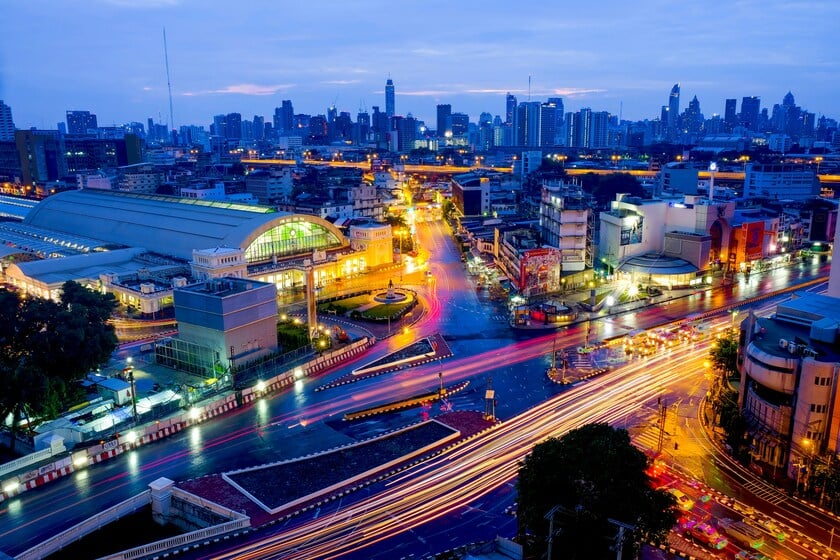
THA collaborated with the Tourism Authority of Thailand (TAT) to mobilize over 4,000 engineers to inspect the quality and safety of the buildings.
According to him, Chinese tourists – one of Thailand's largest tourist groups – are increasingly choosing Japan over Thailand because they feel safer there. Therefore, the Thai government needs to learn from Japan's safety management measures to regain the trust of tourists, not only from China but also from other international markets.

 VI
VI EN
EN



